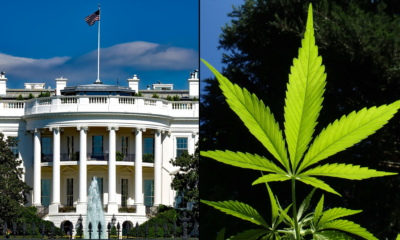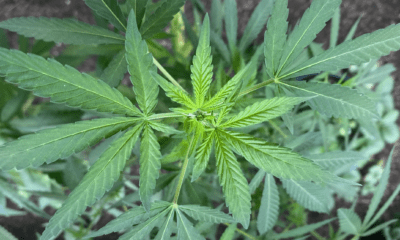Politics
GOP Congressman Files Marijuana Research Bill With Days Left In Session

With just days left in the current Congress, a GOP lawmaker has refiled a bill to promote marijuana research that he’s introduced for the past several sessions.
Rep. Matt Gaetz (R-FL) filed the Medical Cannabis Research Act for the third consecutive Congress on Thursday. An earlier version of the bill cleared a key House committee in 2018 when Republicans were in the majority, but the new legislation is not expected to move during the remainder of the lame duck session with lawmakers having finished their work until the new 118th Congress starts in early January.
While the measure has evolved over time, the latest text is not currently available and Gaetz’s staff hasn’t replied to Marijuana Moment’s queries, so it’s unclear if it’s been further revised, or when the congressman might refile it again for the new Congress, which will see the GOP back in control of the House.
The bill as introduced in the last Congress in 2019 would require the Justice Department to approve additional manufacturers of research-grade marijuana, protect research institutions interested in conducting studies on cannabis and authorize the U.S. Department of Veterans Affairs to inform patients about federally approved cannabis studies that they can participate in.
While the initial version of the legislation was approved by a voice vote in the GOP-controlled House Judiciary Committee after it was first introduced in 2018, several Democratic members of Congress and drug policy reform advocacy organizations voiced opposition to language in the bill that would have barred people with “a felony or drug-related misdemeanor” from manufacturing marijuana for research purposes.
The current chair of the panel, Rep. Jerrold Nadler (D-NY), voted against the proposal at the time because he said it “unfortunately and unjustly expands the collateral consequences of criminal convictions.” But that language was stripped from the next version of the legislation. Instead, only individuals with “violent felonies” on their record would be excluded from participating.
The bill initially came about after then-Attorney General Jeff Sessions blocked the Drug Enforcement Administration (DEA) from making good on its promise to approve additional marijuana manufacturers for research purposes.
DEA has since approved additional manufacturers, breaking a longstanding monopoly on federally sanctioned cannabis cultivation for studies.
Also, President Joe Biden signed standalone marijuana research legislation earlier this month that’s similarly intended to streamline cannabis studies.
The Congressional Budget Office said that the first version of the Medical Cannabis Research Act would have a “negligible” effect on federal spending.
The newest version of the bill is highly unlikely to move beyond introduction before the 118th Congress starts early next month. But it’s not the only drug policy measure to be filed in recent days, and their filing could signal lawmakers’ priorities for the coming session.
Last week, for example, bipartisan congressional lawmakers filed a bill meant to protect consumer access to kratom and prevent adverse administrative actions against the natural substance, which has been used as an opioid alternative and to mitigate withdrawal symptoms.
Meanwhile, advocates headed into the holidays with some disappointing developments in the congressional cannabis reform space. Namely, hopes were dashed after marijuana banking and expungement legislation were excluded from must-pass spending and defense legislation.
Senate Majority Leader Chuck Schumer (D-NY) said on Thursday that he’s making a “pledge” to keep working on federally decriminalizing marijuana in 2023 after advocates faced those setbacks.
The lead House sponsor of the Secure and Fair Enforcement (SAFE) Banking Act, Rep. Ed Perlmutter (D-CO), filed an amendment to the omnibus appropriations bill on Friday to include the reforms, but it was essentially a symbolic gesture before his retirement from Congress and he didn’t force a vote on it.
It’s clear that negotiations were sensitive around adding anything new to the spending bill, and drug policy reform suffered as a final deal was forged. In addition to the lack of SAFE Banking or SAFE Plus language, the legislation also omitted several other reform proposals that were attached to spending measures approved in the House and Senate earlier this year. The final bill also maintains a rider that blocks Washington, D.C. from implementing a system of regulated cannabis commerce—another major setback for advocates.
















